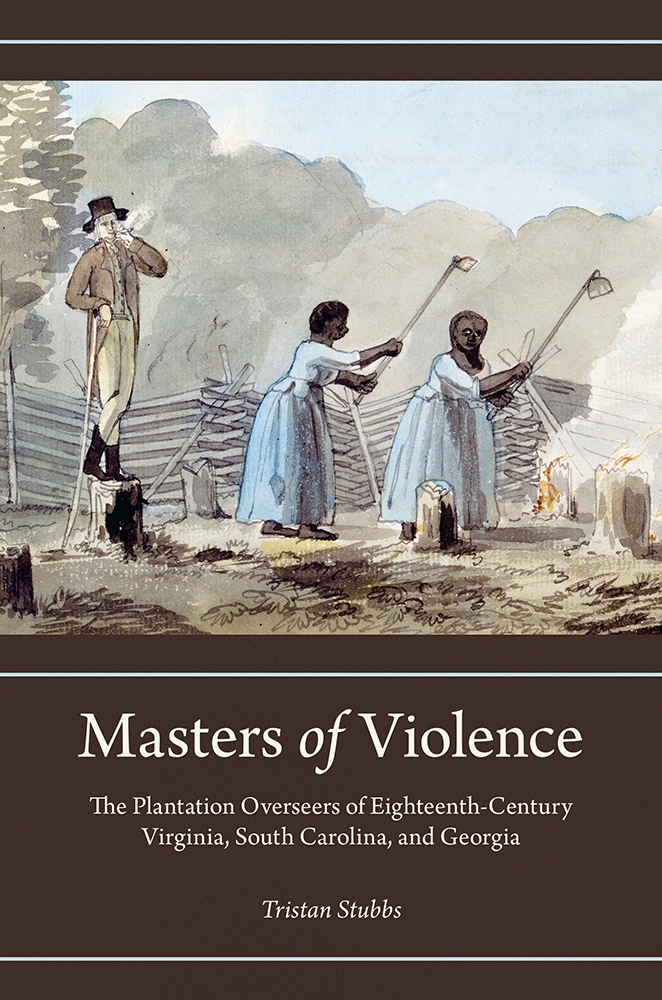Black History Month Sale: 40% off all books, plus FREE SHIPPING on all U.S. orders over $50 | Use code JBHM26

Size: 6 x 9
Pages: 256
Illustrations: 5 b&w halftones
Tristan Stubbs
The inclusion of this book in the Open Carolina collection is made possible by the generous funding of
"Masters of Violence: The Plantation Overseers of Eighteenth-Century Virginia, South Carolina, and Georgia is a solid work of scholarship, and even specialists in the field of colonial slavery will derive considerable benefit from reading it."—Journal of Southern History
"In this wonderfully sensitive study of plantation overseers in the eighteenth-century American South, Tristan Stubbs explains how these key intermediaries between profit-minded but paternalistic slave owners and brutalised enslaved people negotiated porous boundaries of dependency and autonomy. Masters of Violence is a major achievement, restoring the issue of class to societies riven by racial conflict."—Trevor Burnard, University of Melbourne
"Based on a detailed reading of overseers' letters and diaries, plantation journals, employer's letters, and newspapers, Tristan Stubbs has traced the evolution of the position of the overseer from the colonial planter's partner to his most despised employee. This deeply researched volume helps to reframe our understanding of class in the colonial and antebellum South."—Tim Lockley, University of Warwick
"Masters of Violence presents a detailed analysis of the changing role of the overseer and posits that the reputational violence associated with this class of worker led slaveholders to view them less favorably as plantation-based slavery continued into the nineteenth century."—Journal of American History
"Stubbs's work is a fine example of what historians can do when they work across the fractured lines of historiographical modes like "cultural," "political," and "social," and connect historiographies. The book is also well researched, both bringing to light new aspects on familiar sources but also resurrecting interesting ones that few current scholars have used."—The American Historical Review
"Masters of Violence is a fascinating study of an important and understudied topic and a valuable addition to the scholarship of eighteenth-century plantations."—Maryland Historical Magazine
Copyright 2026
Website By Morweb.org